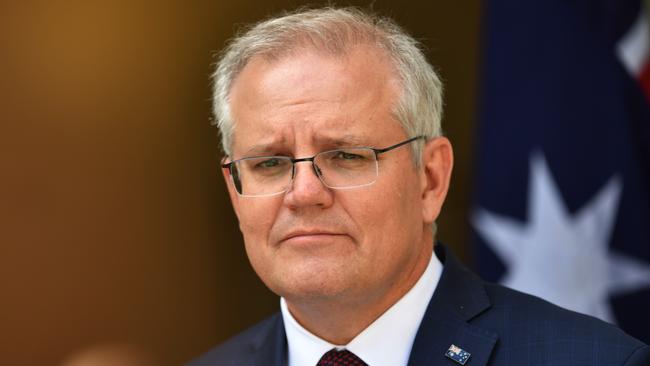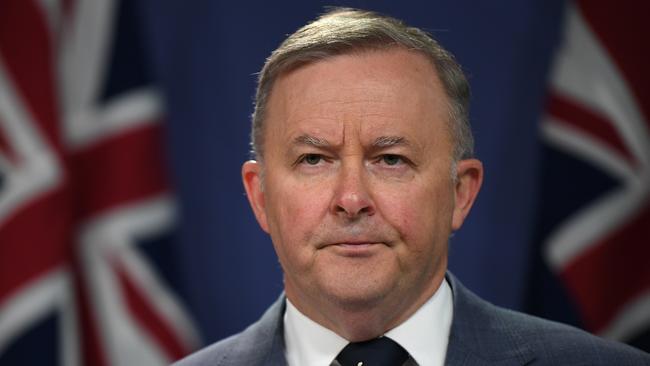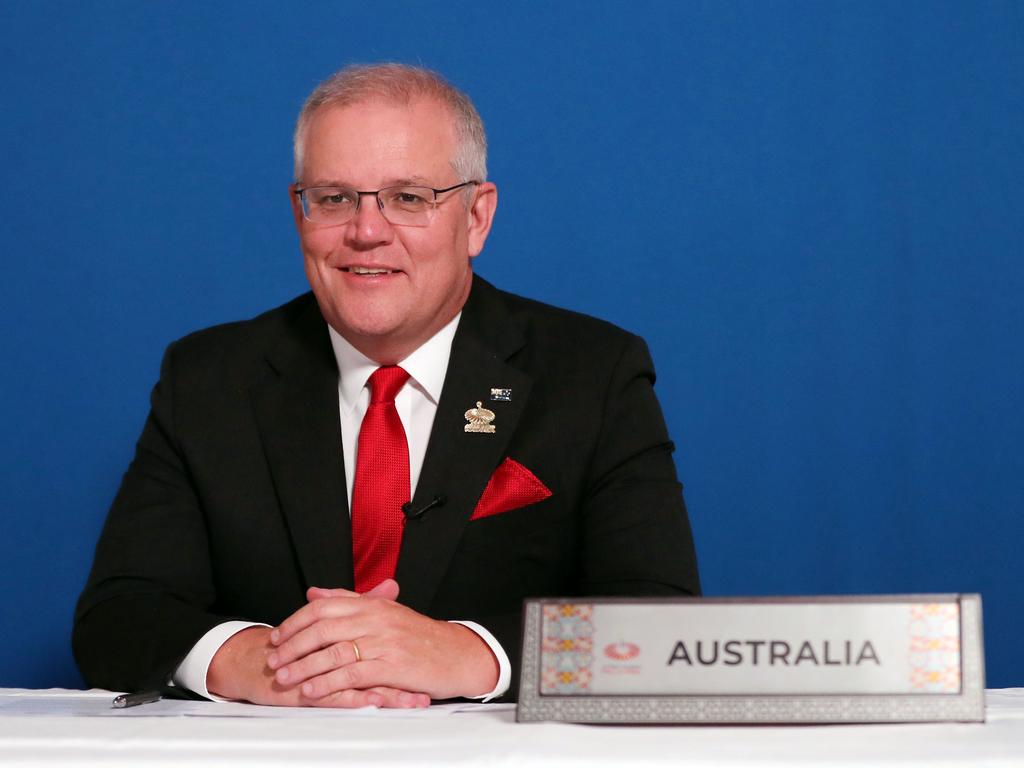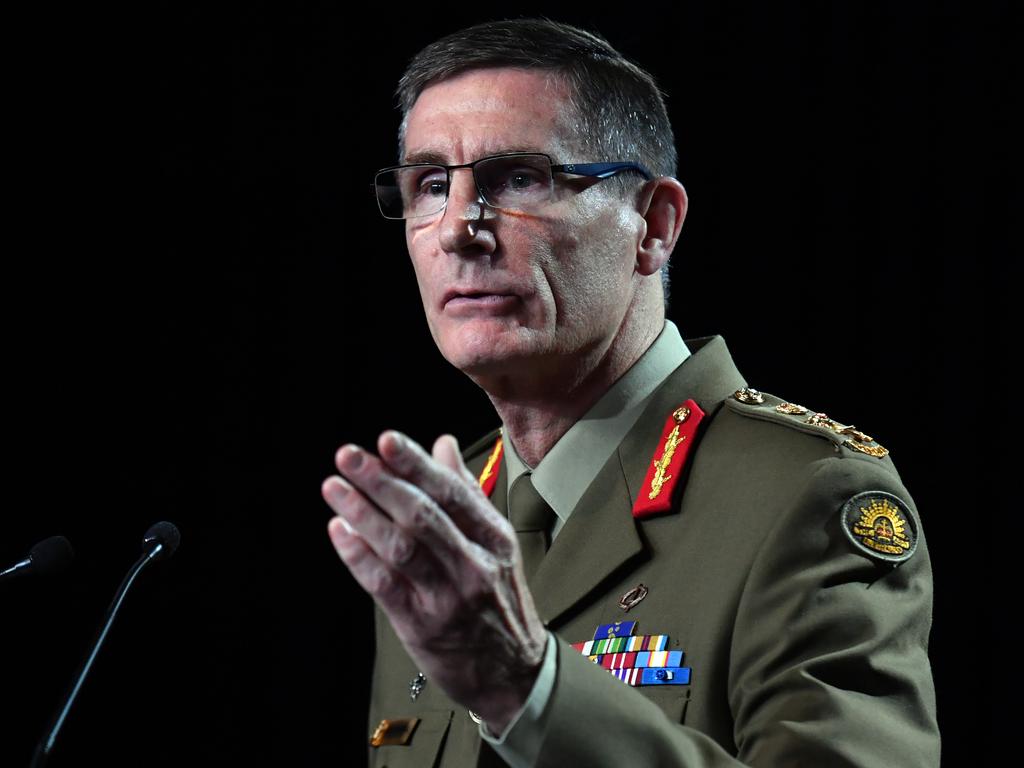Scott Morrison on a high as border bans removed
Popular support for Scott Morrison has risen to its highest level in four months as Labor lifts its primary vote.

Popular support for Scott Morrison has risen to its highest level in four months following the reopening of the Victorian and Queensland borders and as leadership tensions encircle Anthony Albanese.
The lift in the Prime Minister’s approval ratings also comes amid an escalation in the diplomatic and trade conflict with China and the release of the Brereton war crimes report.
A Newspoll conducted for The Australian shows the Coalition preserving its 51-49 two-party-preferred lead over Labor and maintaining its eight-month-long electoral dominance as the government and opposition return to parliament on Monday for a two-week sitting before the summer break.
However, with a swing against it at the weekend in the Groom federal by-election, Coalition strategists are turning their attention to the broader collapse in support for Pauline Hanson’s One Nation, which appears to be favouring Labor in Queensland through a transfer of working-class votes.
The latest Newspoll shows support for PHON nationally falling to among its lowest levels since the May 2016 election, having dropping a further point in the latest poll to just 2 per cent.
It also shows a corresponding rise in Labor’s primary vote from 35 per cent to 36 per cent, more than 2.5 points higher than its election-losing result. The Coalition’s primary vote remained at 43 per cent, which is also almost two points higher than at the last election, and considered a significant election-winning margin.
Popular support for the Greens remained unchanged at 11 per cent, as did support for other minor parties at 8 per cent.
With little movement in the core polling numbers for the major parties during the pandemic, the latest results suggest that political issues considered periphery to the economic and health concerns of COVID-19 continue to have minimal impact on the assessment of the government’s performance.
The period between this and the previous Newspoll has covered significant controversies, including the release of the Brereton report into allegations that a small number of Australian special forces soldiers committed war crimes in Afghanistan.
Senior government sources have admitted concern that the aggressively forward-leaning approach taken by Defence to the Brereton report, and the stripping of citations for all special forces in response to the alleged crimes of a few, could ultimately trigger a community backlash.
However, they believe that the Prime Minister was on safer ground with the government’s steadfastness in the face of increasing Chinese trade aggression.
Mr Morrison’s approval ratings jumped two points to 66 per cent — the highest since July/August and before the outbreak of the second COVID-19 wave in Victoria. Dissatisfaction with his performance also fell two points to 30 per cent, leaving his record long popularity streak intact.
Mr Albanese, whose leadership is coming under increasing pressure following the resignation of frontbencher Joel Fitzgibbon over claims the party’s climate change and energy policy is too left leaning, suffered a net fall in approval ratings of just one point. Satisfaction with his performance as Opposition Leader rose one point to 44 per cent while those dissatisfied rose two points to 41 per cent.
Mr Morrison also extended his lead as the preferred prime minister, lifting two points to 60 per cent over his rival who fell a point to 28 per cent.
This marked the greatest margin between the two leaders since mid-September.
The latest poll was conducted from November 25-18 and surveyed 1511 voters across mainland capitals and the regions.
More Coverage








To join the conversation, please log in. Don't have an account? Register
Join the conversation, you are commenting as Logout